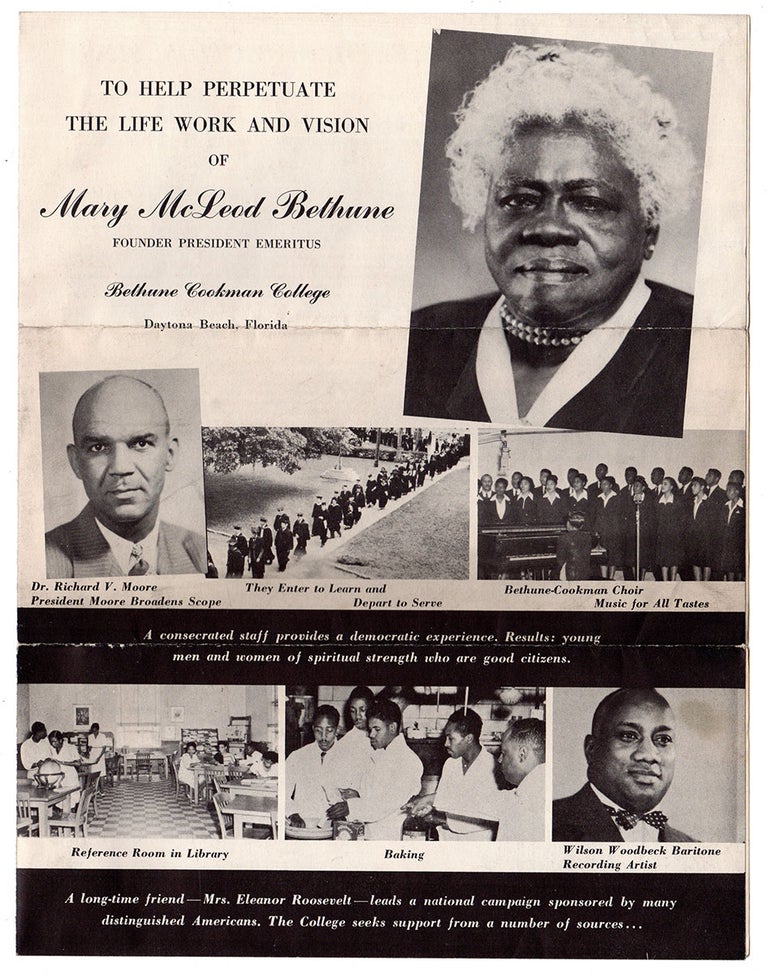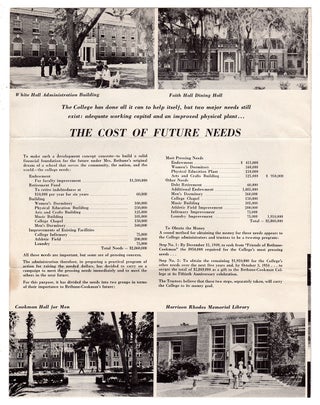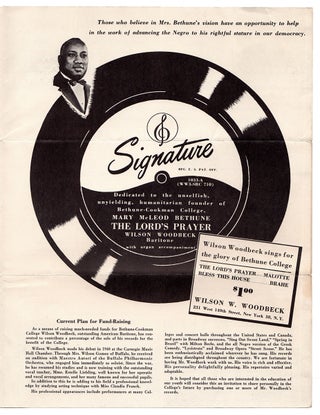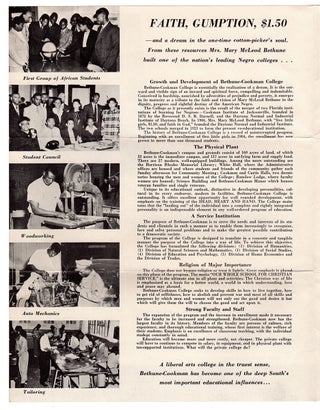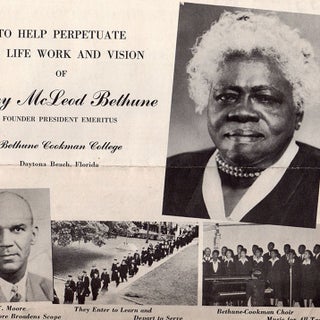To Help Perpetuate The Life Work and Vision of Mary McLeod Founder President Emeritus Behune Cookman College Daytona Beach Florida.
Daytona Beach, Florida: Bethune Cookman College, [1940s–1950s]. 8vo circular (11” x 8.5”), printed. 4 pp. A fundraising circular for Mary McLeod Bethune’s all-black Bethune Cookman College in Florida. Celebrated African-American educator, stateswoman, philanthropist and civil rights activist Mary McLeod Bethune (1875–1955)—fondly known as “The First Lady of The Struggle”—is best known for founding this private college for black students in Daytona Beach, Florida. Born to former slaves in South Carolina, Bethune moved to Florida in 1904 after teaching elsewhere in the South, where she encountered a large black population which had sprung up during the construction of the Florida East Coast Railway. In Daytona Beach, she founded in 1904 the Daytona Normal and Industrial Institute for Negro Girls. Beginning with little capital, she built the school with donations and assistance from both black and white communities. In 1923 the school merged with the Cookman Institute for Men to become the Bethune Cookman College. Bethune served as the college’s president until 1942, and again from 1946 to 1947. Under her guidance, the college became fully accredited and reached an enrollment of more than 1,000. Bethune came to national prominence for her commitment to education and improved racial relations. In 1936 President Franklin D. Roosevelt appointed her administrative assistant for Negro affairs of the National Youth Administration—a post she held until 1944. She would also serve as an adviser on minority affairs to Roosevelt. Featuring an image of Bethune on the cover, this circular spells out Bethune Cookman’s Current Plan for Fund-Raising, which includes the contribution of a percentage of African-American singer Wilson Woodbeck’s records-sales to the benefit of the College. Fundraising for the school was partly sourced from Bethune’s “long-time friend” Mrs. Eleanor Roosevelt, who was leading “a national campaign sponsored by many distinguished Americans.” However, the college here seeks support from “a number of sources.” The back-page outlines the cost of future needs—which totals over two and a half million dollars. The text also outlines the school’s history and its curriculum. The college’s “consecrated staff provides a democratic experience.” The results? “Young men and women of spiritual strength who are good citizens.” Illustrations of various Bethune Cookman subjects are included: a baking class, the school president, an auto mechanics class, the library, the school choir, the student council, school buildings, the “first group of African students,” and so on. The school is described as “one of the deep South’s most important education influences. Those who believe in Mrs. Bethune’s vision have an opportunity to help in the work of advancing the Negro to his rightful stature in our democracy.” REFERENCES: Mary McLeod Bethune (1875–1955) at gwu.edu CONDITION: Old horizontal folds.
Item #5468
Sold


